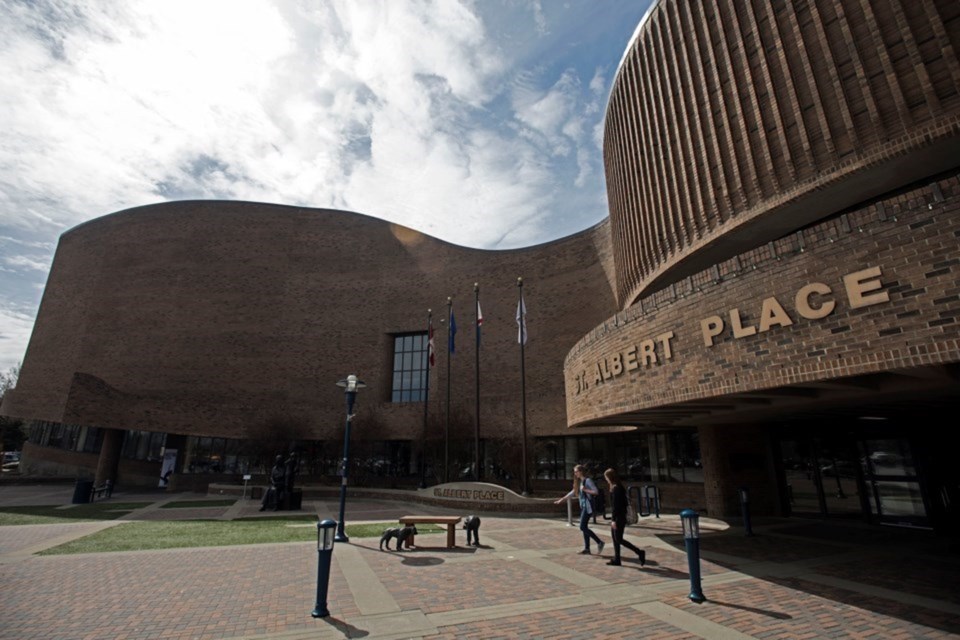St. Albert council received the city's first-quarter financial report for 2024 on May 21, which shows that as of the end of March, the city forecasts a $322,000 surplus for the year.
The expected surplus is mainly a result of $170,000 in higher-than-expected public transit revenue and $50,000 in higher-than-expected revenue from water connection fees from increased housing development.
However, the forecast surplus is slightly offset by the loss of $119,000 in provincial highway maintenance grant funding. In addition, the city's planning and engineering department is now expected to be roughly $247,000 over budget, because of higher-than-expected costs to power streetlights.
Although not a factor in the forecast surplus, St. Albert generated some $2.7 million in revenue from the city's $241 million in cash and investments in the first three months of the year, the report says.
Several members of council said while the first-quarter report provides relevant information on the city's financial position, it's too early in the year to draw meaningful inferences on what the rest of 2024 will entail.
“I don't really take much from the first corporate report because it's so early in the year,” said Coun. Ken MacKay. “You can't even talk about a surplus yet because yes, we identify we're in a surplus position, but it's only until the end of March and a lot of the invoices and a lot of the money hasn't come in yet.”
“A lot of the work that is underway, whether its strategic initiatives [or other projects], really hasn't had a big impact yet.”
For Coun. Sheena Hughes, an early surplus forecast means it's likely the city will continue to see increased surplus forecasts in the following quarterly reports as the year goes on.
“The surplus is always small in the first quarter, and then as the bills come in ... the number tends to increase, not decrease,” she said. “So the fact that it's a $300,000 surplus would mean that we're expecting a similar or higher final surplus as last year.”
In the first-quarter report for 2023, the city forecast a surplus of $524,000, and eventually ended the year with a $4.58 million surplus.
Besides the financial update, the first-quarter report presented to council on Tuesday also says a project charter for servicing the Lakeview Business District — the long talked-about business park planned for the area north of Big Lake — is expected to be finished before the end of the year.
The future business district is thought to be St. Albert's best opportunity to draw more property taxes in from commercial and industrial land so the city doesn't depend on residential property taxes as much. City council's goal is to have a property tax split of 70 per cent residential and 30 per cent non-residential, although for the past few years the city has seen tax splits that are closer to 80 per cent residential and 20 per cent non-residential.
Before businesses and industry set up shop in the Lakeview District, the city needs to service the land, which means bring water, sewage, and stormwater management infrastructure to the area. An official estimate for servicing the area has yet to be made public, but Mayor Cathy Heron has previously said it could cost as much as $80 million.
Coun. Mike Killick told the Gazette council recently received a “good news” update from administration on Lakeview servicing estimates and project scenarios, but he couldn't provide specific details as it was an in-camera discussion.
“A multifaceted team came back with a very good new recommendation with a more cost-effective way to do it,” Killick said. “Our guidance was take that and start to flesh it out and come back with more detail and then we'll be able to go public with that option.”
“It was very good news and a lot of good work was done to get us to that new option.”
Asked about this in-camera update council received, Hughes said she thinks administration has worked hard to minimize the risks inherent in such an expensive project.
“They've gone through and tried to figure out what can we do to accomplish this goal with minimal risk to taxpayers,” she said.
“We haven't seen all the details, but ... obviously developing Lakeview has its risks because we are developing it with the expectation that there will be enough development each year to pay for the cost of borrowing for servicing.”
The report doesn't provide a date for when the project charter will be made public.




